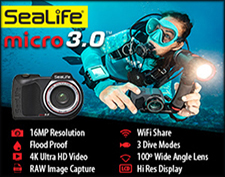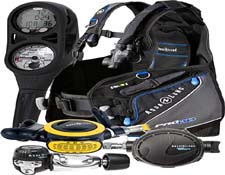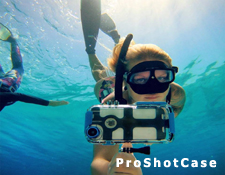

|


|
 |
 |
 |
 |
 |
 |
 |
 |



|
Malaysia Travel Information
The Federation of Malaysia comprises Peninsular Malaysia and the states of Sabah and Sarawak on the island of Borneo. Geographical Location Located 7 degrees north of the Equator Peninsular Malaysia is separated from the swa of Sabah and Sarawak by the South China Sea. In the north of the peninsula is Thailand while its southern neighbour is Singapore. Area 329,758 sq km Population 31 million Capital Kuala Lumpur People Malays who make up about 57% of the population are the predominant group with Chinese, Indians and other ethnic groups making up the resl Language Bahasa Melayu (Malay) is the national language but English is widely spoken. The ethnic groups also speak various languages and dialects. Religion Islam is the official religion but all other religions are practiced freely. Government Parliamentary democracy with a bicameral legislative system. The Head of State is the Yang Di-Pertuan Agong and the Head of Government is the Prime Minister. Climate Tropical climate with warm and humid weather all year round. Temperatures range from 210 C to 32 -C. Annual rainfall varies from 2000mm to 2500mm. History and Culture There is a strong interlink between the country's multi-racial and multicultural make up with its history. Besides the local Malays and the native groups, immigrants from China, India, Indonesia and other parts of the world have all contributed to the multiracial composition of its population. Its interesting cultural diversity can be largely attributed to the country's long and on-going interaction with the outside world and colonial rule by the Portuguese, Dutch and the British. Consequently, the evolution of the country into a cultural melting pot is evident in the unique blend of religions, sociocultural activities and traditions, dress & languages and food. The country achieved independence on August 31, 1957 as the Federation of Malaysia and subsequently with the entry of Sabah and Sarawak Malaysia was formed. Major Holidays New Year's Day Hari Raya Aidil Fitri (January) Chinese New Year (January/February) Federal Territory Day (February 1) Wesak Day (May) King's Birthday (June) National Day (August 3l) Deepavali (October or November) Christmas Economic Profile Manufacturing constitutes the largest single component of Malaysia's economy. Tourism and primary commodities such as petroleum palm oil, natural rubber and timber are major contributors to its economy. Entry Requirements Visitors to Malaysia must be in possession of a valid passport or travel document with a minimum validity of six months beyond the intended visiting period. Most nationalities do not require visas for social or business visits, For further information, please check with the nearest Malaysian diplomatic mission or Tourism Malaysia Office. Currency The unit of currency is the Malaysian Ringgit indicated as RM. Foreign currencies can be converted at banks and money changers. All residents and non-residents are required to complete the Travellers Declaration Form (TDF). The revised TDF has two separate sections and separate columns for residents and nonresidents to declare their currencies; the blue section for the residents and the white section for the non-resident. Residents are only required to declare in detail the exact amount of ringgit carried when they enter or leave the country only if the amount is in excess of RM1,000. They are also required to declare in detail the exact amount in foreign currency, including traveller's cheque carried, when they leave the country only if the amount exceeds the equivalent of RM1O,000. Residents do not have to declare any amount of foreign currency, including traveller's cheques, carried with them when they re-enter the country, Non-residents are only required to declare in detail the exact amount of ringgit carded when they enter or leave the country only if the amount is in excess of RM1,000. As for foreign currency, including travellers cheques, declaration in detail is required only if the amount exceeds the equivalent of USD2,500. Residents are required to keep the TDF in their passport when they leave the country and surrender the TDF on their return journey. Non-residents are required to keep the TDF with their passport and surrender the TDF on leaving the country. Banking Hours Most states: Mon-Fri: 9.30am - 4.00pm Sat: 9.30am-11.30am Sun: Closed Kedah, Kelantan & Terengganu: Sat-Wed: 9.30am - 4.00pm Thur: 9.30am-11.30am Fri: Closed Closed first Saturday of the month. Post Offices Open from 8.30am to 5.00pm daily except first Saturday of the month, Sundays and public holidays. In Kedah, Kelantan and Terengganu post offices are closed on Fridays, first Saturday of the month and public holidays. Time Eight hours ahead of GMT and 16 hours ahead of U.S. Pacific Standard Time Electricity Voltage is 220-240 volts AC at 50 cycles per second. Weights and Measures Malaysia follows the metric system in weights and measures. Telephones Local calls can be made from public phones using coins or pre-paid cards. International calls can be made from public phones with card phone facilities or at any Telekom offices. Getting There The main gateway to Malaysia is through the new KL International Airport at Sepang located approximately 50km south of Kuala Lumpur. The Sultan Abdul Aziz Shah Airport in Subang serves a few domestic and regional airlines. other major international airports which serve as entry points are Penang, Kuching, Kota Kinabalu and Langkawi. The main entry point by sea to KL is at Port Klang, about 50km away from KL. Malaysia is also accessible by rail and road from Singapore and Thailand. Getting Around Malaysia has excellent domestic air links and a well developed and effective public transportation system served by buses, taxis and trains. Accommodation Malaysia has a wide range of accommodation at competitive rates. International standard hotels, medium and budget hotels, youth hostels and timeshare apartments are just some of the types of accommodation available. Privately operated motor-homes are also available for rental. Do's & Don'ts When visiting Malaysia, the visitor should observe local customs and practices. Some common courtesies and customs are as follows:
|
| DiveGuide.com Scuba Diving Vacations & Dive Holidays - Book direct dive travel with scuba diving operators, resorts, dive liveaboard yachts and dive travel representatives worldwide. We provide free scuba diving information for the traveling diver on vacation and holiday in and to scuba diver destinations around the world. |












|